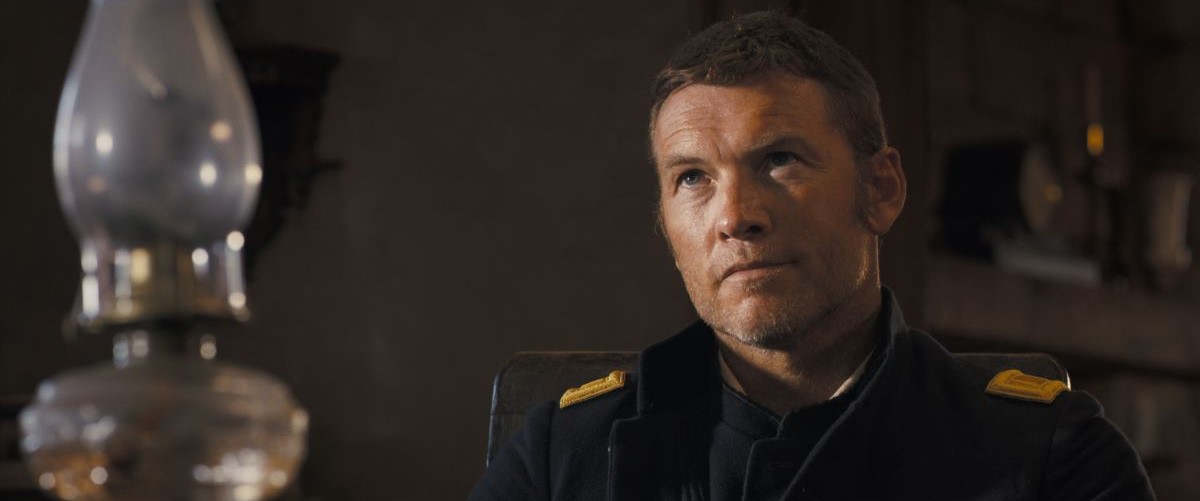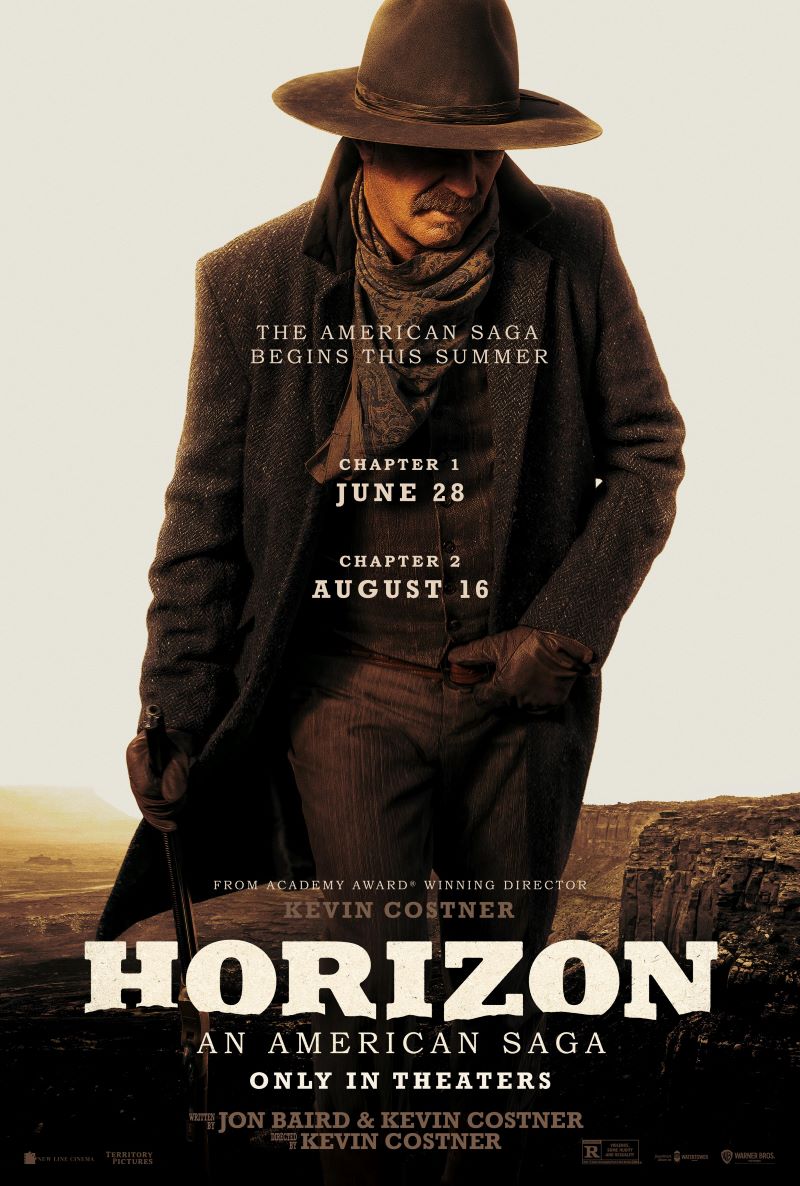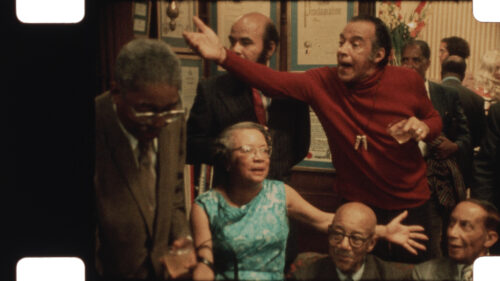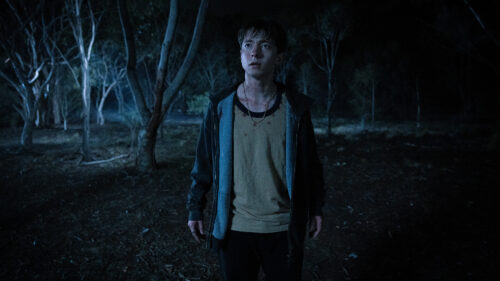Over sixty years ago, directors Henry Hathaway, John Ford, and George Marshall joined forces to tell the story of America’s push toward the Pacific. “How The West Was Won” was a tremendous undertaking. Produced through the three-strip Cinerama process, it featured a deep ensemble of high-wattage stars—James Stewart, Spencer Tracy, John Wayne, Gregory Peck, Henry Fonda, Thelma Ritter, and many, many more—and a canvas that seemingly stretched further than the country itself. Its story is one of (white) perseverance to conquer the land, the people already inhabiting it, and each other. It suffers from its grand scale, competing visions, and regressive politics. And yet, there is a mystique to the very audacity of attempting it.
For actor Kevin Costner, the film must surely have been at the forefront of his mind while making his ambitious directorial return—“Horizon: An American Saga—Chapter 1,” a three-hour work attempting to rewrite past wrongs while suffering from the same glut that afflicted the film it most recalls.
“Horizon” isn’t trying to subvert the Western, relying on many well-worn tropes. It’s also a slow build of intersecting stories that takes so long to get going that Costner doesn’t even appear on screen until an hour in. Instead the first third of “Horizon” is merely a long preamble, a structural decision indicative of a film grinding and failing to prove itself as a standalone feature. The sizzle reel that ends Chapter One, in fact, featuring a library of clips and characters for future movies, does well to tease the kind of high-motoring film we could get but don’t necessarily find here.
Rather, Chapter One limps into 1859 in San Pedro Valley. A family surveying a plot of land by a creek is gruesomely murdered by Apache warriors who are none too happy to find white outsiders on their land. These deaths, however, do little to deter more from coming to the point of settling in a town guarded by armed citizens. At nightfall, during a town dance, the Apache warriors return: the grisly, vicious massacre—backgrounded by rumbling flames and deafening screams—is frankly edited and bluntly composed to the point that it feels as normalized as breathing. A few of the townsfolk survive. Some decide to hunt down their attackers in a bid for revenge. Others like Lizzie (Georgia MacPhail) and her mother Frances (Sienna Miller) leave with the Union Army led by Lt. Trent Gephardt (Sam Worthington) to the relative safety of a fort.
Even with the cataclysmic scenes of death, the first hour does little to endear these characters. They’re disparate people whose connections aren’t immediately clear and only become vaguely obvious toward the picture’s conclusion. Before long, we’re whisked away to the Wyoming Territory and introduced to some brand new characters: Costner finally appears as Hayes Ellison, a horse trader, among many other skills. He befriends local sex worker Marigold (a creaky Abbey Lee), who is hunted by a band of gunmen because of a secret she’s hiding. The series gains a minor pulse once Costner, featuring a gruff, low voice, appears on screen. But even when he does appear, he feels like an afterthought. As though Costner, the filmmaker and writer (he co-wrote the script with Jon Baird), knows how tall of a task he has introducing all of his main players. Consequently, the power of his presence is left limited to the film’s detriment.
The final arc, introduced in the final hour, is the high point: It involves a wagon train making its way with an unlikely cast of characters through the Montana territory. Luke Wilson, the head of this traveling group, is the strongest actor in this cast, too. He is more than a shadow of a Western archetype, imbuing Matthew Van Weyden with a groundedness that the series sorely lacks.
Because as much as Costner tries to play an even hand, attempting to give the Indigenous and settler perspective equal attention, it doesn’t wholly work. Yes, we meet the family of the Apache warriors, but their screen time pales in comparison to their white counterparts. It also doesn’t help that the white women characters are, for the most part, so clean and luminous—nary a speck of dust on them despite their grungy surroundings—that they appear angelic on screen. The score is equally telling: It’s a gorgeous, big, triumphant Old Hollywood score whose most sympathetic notes are reserved for the film’s white characters. Costner does at least include a diverse cast, nodding toward the presence of Black people and Chinese immigrants in the history of the West, tracing across the vast, sumptuously photographed landscape by DP J. Michael Muro.
While “Horizon” teases a kind of conspiracy theory—a mysterious publisher is printing and sending pamphlets promising a land of milk of honey that is only occupied by death—I can’t help but continue to think about the film in relation to “How The West Was Won.” That Western, ultimately, couldn’t overcome the weight of the era it was created in or genre conventions like forced, feeble romances. “Horizon” is arriving in a more “enlightened” time, especially considering the release of Martin Scorsese’s “Killer of the Flower Moon” and other Indigenous-made works, such as “Reservation Dogs,” “Wild Indian,” “The Body Remembers When the World Broken Open,” “Beans,” and more. That presence put even greater pressure on Costner. And so far, he hasn’t completely overcome being the director of “Dances with Wolves.” That filmmaker, for better or for worse, still exists here in every corner of this epic picture.
While the first film in the possible “Horizon” series does well in setting up future pictures, continuing the momentum Costner gained before he left “Yellowstone,” this single film is a chore to sit through. It rarely gives viewers what they want: seeing Costner on the open range. It gives us few memorable characters outside of Costner: I can’t remember the name of a single figure without looking at my notes. It feels like a debilitating mistake to bank on possible future films to land the entire concept. “Horizon” keeps far too many of the best bits far out of reach.
This review was filed from the premiere at the Cannes Film Festival. It opens on June 28th.




















